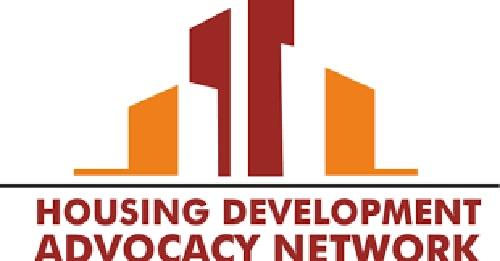The Nigerian national housing policy (1991) envisioned an era of accessible land and thriving construction for private developers, yet the reality in Lagos tells a different story. Despite noble intentions, the real estate sector in Lagos continues to deal with a myriad of challenges that impede its progress.
From cumbersome approval processes to the burden of multiple taxes, developers find themselves navigating a web of obstacles just to bring housing projects to fruition.
Bureaucratic bottlenecks in land approval and registration continue to hinder real estate development in Lagos by causing delays in processing permits, zoning changes, and title transfers. These bottlenecks often involve multiple layers of government agencies, complex regulations, and inconsistent enforcement, making it challenging for developers as securing building permits is akin to crossing hurdles that not only inflate project timelines but also escalate costs.

For developers, time is money, and every bureaucratic hurdle translates into lost opportunities and increased financial strain.
Philips Ayotunde, a former Treasurer of the Lagos Chapter of the Nigerian Institute of Building, once pointed out several obstacles that were making the land documentation process difficult. He emphasized that human involvement was making the situation worse and suggested that digitalization could help address these challenges.
READ ALSO: HDAN Advocates Decent Home for Every Police Officer, Commends IGP Egbetokun on New Initiative
However, Dr. Idris Salako, a former Commissioner for Physical Planning and Urban Development in Lagos State, attributed delays in the issuance of planning permits by the government to developers and property owners failing to obtain necessary approvals from relevant ministries, departments, and agencies. He emphasized that these requirements were not overly burdensome but essential for regulating the built environment and facilitating the state’s development, except for those attempting to bypass regulations.
Another issue confronting the real estate sector in Lagos is multiple taxation. Even though not peculiar to Lagos, Real estate developers are not merely subject to taxes; they face an onslaught of levies that strain their financial resources. From land use charges to development fees, the burden of multiple taxation worsens the already steep costs of housing projects.
In August 2020, professionals in the housing industry decried the imposition of multiple taxes on real estate transactions by the government. The outburst stemmed from fresh directives by the Federal Inland Revenue Service (FIRS), mandating landlords and property agents to charge six percent on tenancy transactions as Stamp Duty and remit the same to FIRS under the Stamp Duty Act.
Many real estate practitioners raised concerns, stating that the multiplicity of taxes without consideration was becoming untenable.
They warned that landlords may exploit the situation by passing the new tax burden onto tenants.
Principal Partner, Ubosi Eleh and Co., Mr. Chudi Ubosi, an estate surveyor and valuer, urged the government to shelve the directive, citing an already overwhelming tax burden on real estate transactions. Existing taxes on real estate investment already include Certificate of Occupancy, Governor’s Consent, planning approval, ground rent, Value Added Tax, tenement rates, and legal fees.
Recently the Lagos state government disclosed that over 80 per cent of buildings in Ibeju Lekki, Lagos State, lack proper approval and also, it revealed that many who acquired agriculture lands in the state often use them for real estate purposes, saying the entire Lekki corridor was zoned for agriculture but was taken over by housing development.
These and other issues continue to face real estate development in the state.
Impact on Accessible and Affordable Housing
The cumulative effect of these challenges worsen the housing crisis and relegates affordable housing to the back seat of fantasy. With each passing day, the gap between supply and demand widens, leaving countless residents trapped in a cycle of housing insecurity.
Cumbersome approval processes and bureaucratic bottlenecks not only delay housing projects but also inflate costs, ultimately contributing to the unaffordability of homes. Developers, faced with a web of regulations and lengthy approval procedures, incur additional expenses and lost opportunities, which are often passed on to prospective homeowners.
Moreover, the burden of multiple taxation further worsens the cost of housing projects, making it increasingly difficult for developers to offer affordable housing options to residents.
The revelation that over 80 per cent of buildings in Ibeju Lekki, Lagos State, lack proper approval highlights the burden of real estate development in the state. Without proper approval, these buildings might not meet safety and regulatory standards, potentially putting residents at risk. It also complicates urban planning efforts and could lead to issues like overcrowding and inadequate infrastructure in these areas.
READ ALSO: HDAN Joins Prominent Nigerians to Pay Tribute at Arc. Aduku’s Service of Songs
Way Forward
In view of these challenges, stakeholders in the real estate sector, under the aegis of the Housing Development Advocacy Network (HDAN), are calling on the Lagos state government for urgent intervention. The group advocates action to tackle bureaucratic bottlenecks, burdensome taxation, and unregulated development, so as to foster an enabling environment for real estate developers.
HDAN advocates cutting down multiple and duplicated taxes, which unfairly burden developers and worsen the unaffordability of housing, thereby impeding the quest to address the housing deficit in the country.
The group recommends that digitization of land acquisition and registration processes is crucial to prevent bottlenecks and streamline procedures.
Also, the state government must undertake critical monitoring of processes to prevent incidents such as recent revelations about land misuse.
By implementing these recommendations, the state government can facilitate a more conducive environment for real estate development, ultimately advancing the cause of accessible and affordable housing for the residents of Lagos State.


